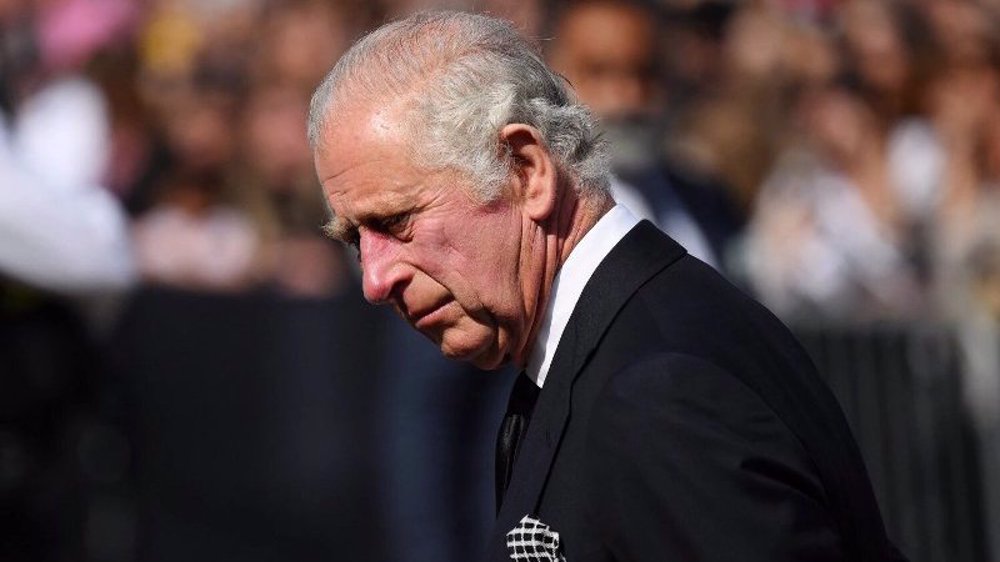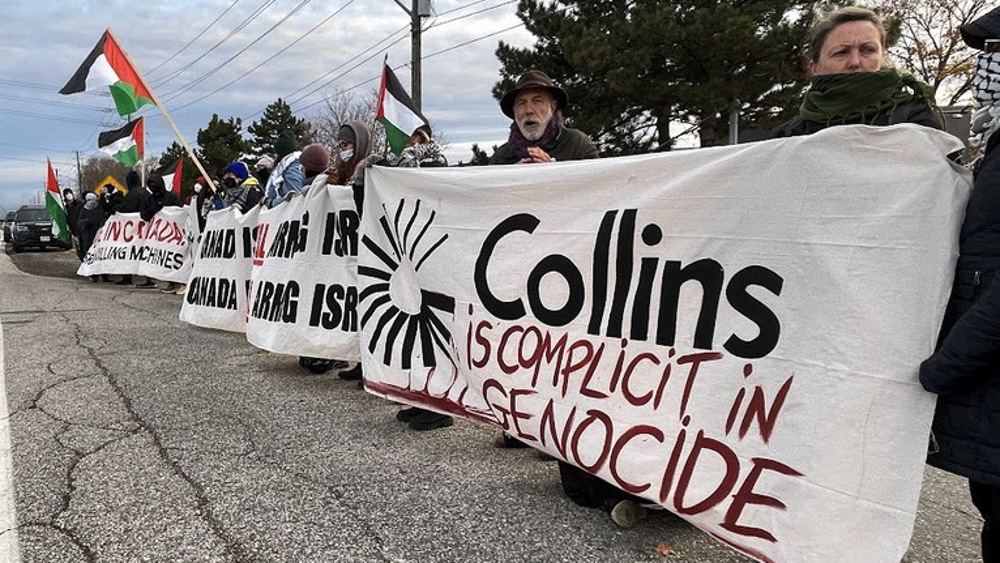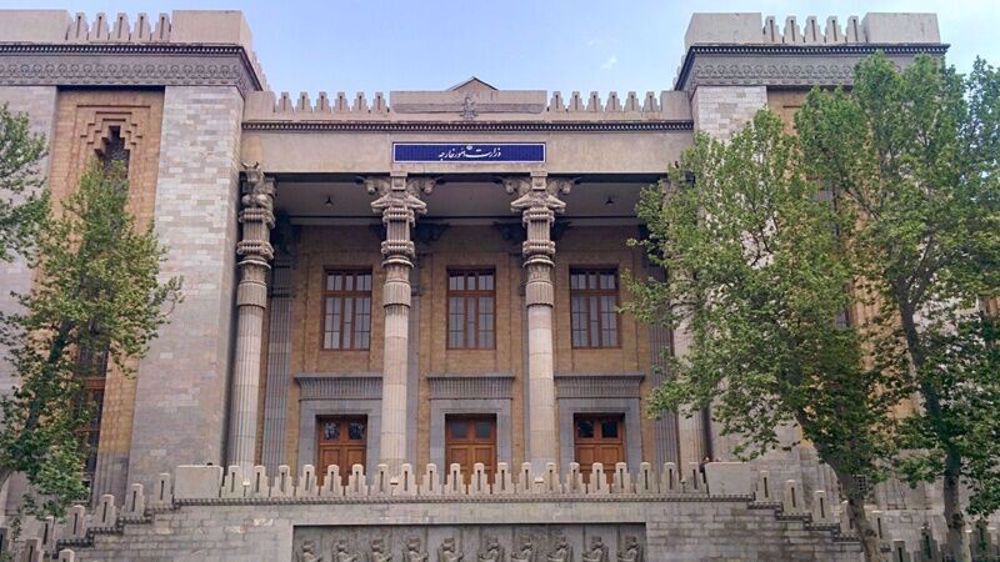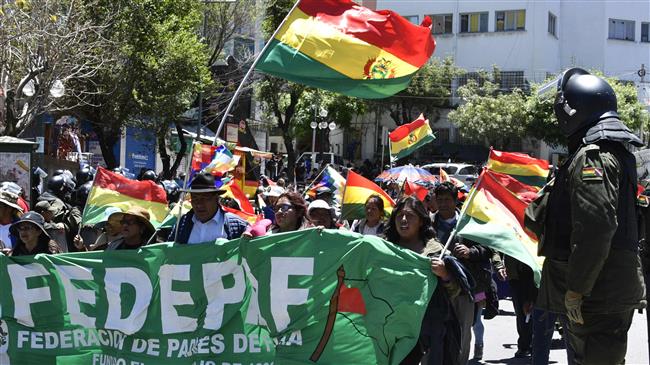Bolivia’s Morales thanks supporters for ‘rejecting coup’
Bolivian President Evo Morales has thanked his supporters for having thwarted a “coup d’état” against his government, as protests against his re-election enter the third week, with demonstrators calling for his resignation.
Both the supporters and opponents of President Morales took to the streets in rival rallies in the capital, La Paz, on Tuesday.
Thousands of government supporters marched through the streets to a stage near the new presidential residence from where Morales addressed the crowd.
Morales won the election on October 20 with a lead of just over 10 points over the opposition candidate, Carlos Mesa. His opponents rejected the election results, accusing him of fraud and engaging in violent protests.
On Tuesday, Morales said his opponents were seeking to stage a coup after having lost the election.
“Now they are trying to come together and to regain the political power. And when they can’t win the elections, they fabricate the term fraud. Now we realize it is not a fraud, but a coup d'état. And that’s what we’re dealing with,” he said.
“For that reason,” Morales told the crowd, “I greet you in the name of the vice-president who accompanies us, all of us, in this will, in this spontaneity to confront and reject the coup d'état of the racists who are trying to regain political power.”
The Bolivian president said that if the opposition was “sure that this was a case of fraud, then I would be happy to take all the evidence to those international organizations. Since they don’t have any proof, now they [go] from the fraud to a coup.”
The Organization of American States (OAS) is doing a count audit, expected to be completed before the middle of the month. It has previously recommended a second-round vote.

Meanwhile, tensions erupted across the capital as protesters were marching and demanding Morales’ resignation.
Riot police fired tear gas to disperse the protesters, who threw tear gas canisters back at police.
Opposition figure flown back to home city
On the other side of the city, people blocked the La Paz airport and prevented opposition figure Luis Fernando Camacho from arriving at the capital on Tuesday.
Camacho was flown back on an air force plane to his hometown Santa Cruz “to protect his safety,” said Interior Minister Carlos Romero.
Camacho, who was leading the protesters in Santa Cruz, the country’s most populous city, said he would lead a protest march in the capital on Wednesday and push for Morales’ resignation.
“Tomorrow, at half past two in the afternoon, I will return to La Paz, and will do so every day until I can enter the government palace,” Camacho told reporters after returning to Santa Cruz.

Mesa, the defeated presidential candidate, also repeated his call on Morales to resign.
Meanwhile, Senate leader Adriana Salvatierra said the government would not bow to the demands to step down.
“We will not fall under pressure, but we will wait for the end of the audit,” he said.
The president came to power in 2006 as Bolivia’s first indigenous leader. He has won his previous three terms with solid majorities. Bolivia has been experiencing years of political and economic stability and growth under his rule.
The economy has grown by an annual average of about 4.5 percent, well above the regional average, and the International Monetary Fund (IMF) predicts it will grow at four percent this year.
What led to dilly-dallying in ICC arrest warrants against Netanyahu, Gallant
Palestinians flee Gaza City suburb after Israel issues forced evacuation order
Iran says will discuss key nuclear, regional issues with France, Germany, UK
VIDEO | Israeli archaeologist killed in Southern Lebanon
VIDEO | Israeli airstrike on Lebanon's army base kills soldier, injures 18 others
VIDEO | Sirens sound across Tel Aviv as Hezbollah fires barrage of missiles at Israeli target
Israeli ‘archeologist’ who toured south Lebanon in military uniform to falsify history
The importance of Venezuela for Iran













 This makes it easy to access the Press TV website
This makes it easy to access the Press TV website